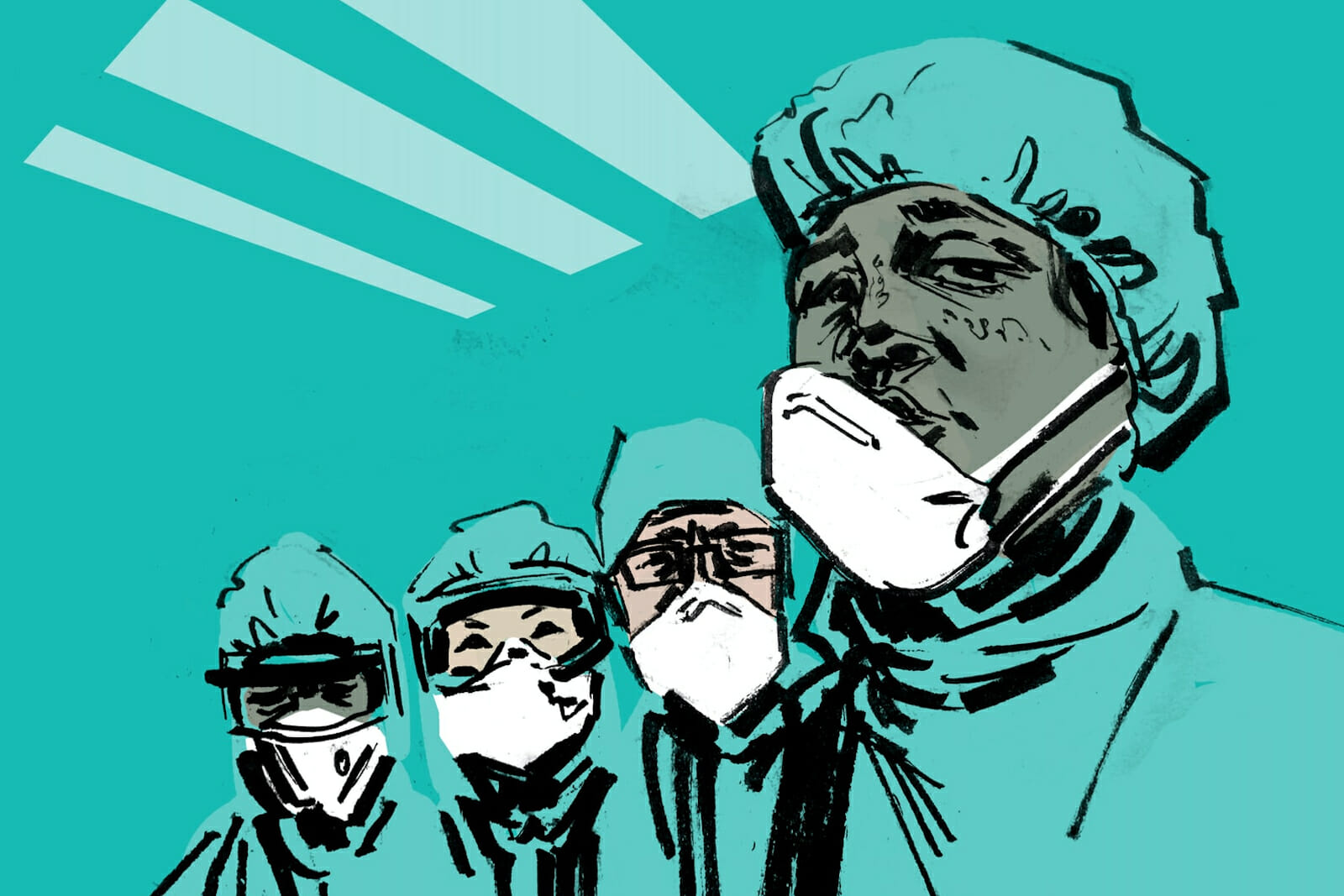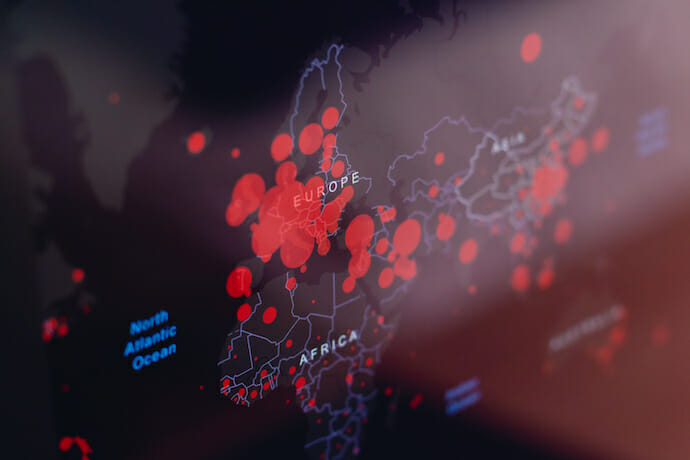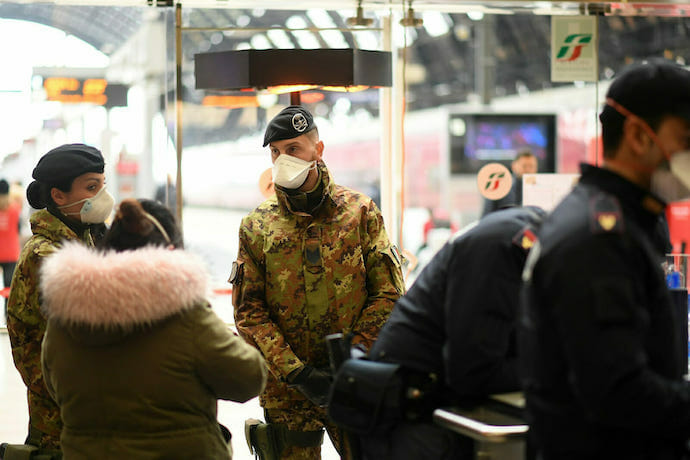
UK Sees Light at End of the Virus Tunnel but EU Still Languishing in the Dark
If there’s anyone deserving of a bit of sympathy right now it is the 450 million people who live in the European Union.
Why? Because it could be argued that they have been very badly shortchanged by those supposedly in charge of the rollout – or, in this case, non-rollout – of vaccines to tackle the coronavirus crisis.
The contrast with the UK, and the 17.5 million Brits who voted to leave the European Union, and are now freely and finally free of the EU’s “suffocating shackles,” could not be starker.
On 15 March, Britons are planning to “eat, drink and be merry” once the current lockdown lifts, with many pubs and restaurants already fully booked for several months.
Those keen to make up for lost time have inundated venues in England with bookings for tables in beer gardens for when they are scheduled to reopen on 12 April.
Over in the European Union, the story is very different, depressingly so – and possibly made even worse with all sides now blaming each other for what is widely seen as a vaccine fiasco.
For evidence of this, look no further than Belgium, the “home” of the EU, where many of the bloc’s sprawling and lavish buildings are based. By 15 March, the number of people in Belgium who have been vaccinated stood at a measly and rather pathetic 763,000.
In the UK, a massive 46 percent of the population, by contrast, has been vaccinated with the figure rising rapidly with each passing day.
It has been reported that, so bad is the situation at the self-proclaimed “heart of the EU” that coronavirus worries are keeping almost a third of people in Belgium awake at night. According to a Belgian university study, 29% of people suffer insomnia, up from 19% during the first coronavirus shutdown last year and 8% before the pandemic hit.
On 15 March, four more vaccination centres in Brussels opened, meaning that by the end of March, nine of Brussels’ 10 planned vaccination centres will be open – each with a capacity of 27,900 vaccinations per month.
The problem is that, embarrassingly, each have one thing in common – they are relatively empty with hardly anyone actually getting a jab.

So, what is the EU’s response to all this?
Well, on 15 March, the European Parliament, which likes to see itself as a champion of the public, held a debate on “People in distress at sea.”
The many millions still waiting for their first vaccine jab in Europe might rightly ask: “What about people distressed by the vaccination chaos?”
The nearest the EU has come to actually saying sorry for the current mess came at the weekend when Frans Timmermans, Vice-President of the European Commission, acknowledged that the European Union has made mistakes when ordering COVID vaccines. “It is true that mistakes were made in ordering the vaccines, both in Brussels and in the Member States,” Timmermans told the German daily Der Tagesspiegel.
The best Timmermans can suggest is to take stock after the pandemic has ended. “Then we can see what we have done wrong and what we have done right.”
Like virtually all in the EU, he does believe, however, that “a European approach” was the right one.
Many find the continued robust defence of the EU’s overall vaccine strategy, which saw Brussels take control of things even though it had had little or no experience of procurement in the health domain, astonishing.
Health has always been, since the inception of the EU, a closely guarded competence of each member state (like defence, taxation) and this apparent refusal to concede that the EU might just possibly have been better leaving the vaccination campaign to its 27 member states will simply not wash with many people anymore.
The charge that the European Commission acted much too late, hesitated, and made strategic mistakes in the procurement of vaccines, really does matter, not least because it could well be costing lives.
Consider this too: at a time when the UK (and others – all, note, outside the EU) are now considering loosening restrictions and seeing light at the end of a very long tunnel, several EU countries are sadly going directly the other way.
A third wave of the pandemic is now advancing swiftly across much of Europe. As a result, many nations – bogged down by continuingly sluggish vaccine campaigns – are witnessing sharp rises in infection rates and numbers of cases.
The infection rate in the EU is now at its highest level since the beginning of February, with the spread of new variants of the COVID-19 virus being blamed for much of the recent increase.
Several countries are now set to impose strict new lockdown measures in the next few days – in contrast to the UK, which is beginning to emerge slowly from its current bout of shop and school closures and sports bans.
In Italy, authorities have recorded more than 27,000 new cases and 380 deaths and, from 15 March, most in the country will be placed under lockdown and people will only be allowed to leave their homes for essential errands. Most shops will be closed, along with bars and restaurants.
In France, authorities have reported a similarly grim situation, with Olivier Véran, the country’s health minister, describing the situation in the greater Paris region as tense and worrying. “Every 12 minutes night and day, a Parisian is admitted to an intensive care bed,” he revealed.
President Macron has imposed curfews and other social restrictions in several regions while, in Germany, 12,674 new COVID infections were reported on 14 March, a rise of 3,117 from the previous week. The head of the country’s infectious disease agency says Germany is now in the grip of a third wave of COVID-19.
Poland has reported 17,260 new daily coronavirus cases, the highest daily figure since November, and new restrictions are set to come in this week. Both Hungary and the Czech Republic have reported high infection rates and deaths from COVID and health officials have warned figures are likely to get worse in the coming weeks.
It is worth stepping back a few weeks to recall how, with no little fanfare, the European Commission announced how it had secured what even then seemed a staggering number of doses of vaccines – some 2.3 billion, no less.

On 17 December, a European Commission press release – or “communication” in EU jargon, announced it had “secured a broad portfolio of vaccines to be produced in Europe” including contracts (in EU speak – “advanced purchasing agreements”) signed with no less than six pharma companies: AstraZeneca, Sanofi-GSK, Janssen Pharmaceutica, Pfizer-BioNTech, CureVac, and Moderna.
The “communication” added, “This diversified vaccines portfolio will ensure Europe is well prepared for vaccination.”
Ursula von der Leyen reassured the public saying “Access to more vaccines will lead to a sufficient coverage for beating the pandemic.” While Stella Kyriakides, Commissioner for Health and Food Safety, noted, “Vaccination will determine how we will live and work in 2021.”
She said, “They need to be quickly distributed and deployed across Europe” and the European Commission was “committed to ensuring that everyone who needs a vaccine gets it.”
The “diverse vaccine portfolio” Ursula von der Leyen said at the time, will “Enable the EU to cover the needs of its whole 450 million population.”
The EU had ordered from multiple companies because it “did not want to put all its eggs in one basket.”
It was (and remains) also part of the COVAX facility which seeks fair and universal access to COVID-19 vaccines. “Team Europe” allocated €850 million to COVAX, which makes the EU COVAX’s biggest donor.
So much for the promotional blurb.
The first chinks in the strategy came in the form of another “communication” on January 25 when commissioner Kyriakides admitted, “there is a problem on the supply side.”
AstraZeneca “surprisingly,” said “it intends to supply considerably fewer doses in the coming weeks than agreed and announced.”
This new schedule “is not acceptable” which is why she said she had written to the company to ask, “important and serious questions.”
Given the painfully slow rollout one can only assume she’s still waiting for answers to those “important and serious questions.”
One big problem for many has been the role in all this of the European Medicines Agency, one of no less than 40 different EU agencies covering a multitude of areas.
The EMA is the body with the role of saying if vaccines have been proven to be safe and effective. It is only when they have been granted market authorisation by the Agency that production can commence. The problem is that the EMA is seen to have been simply too slow in granting such approval, allowing the UK and others to steal a march on the EU when it comes to ordering vaccines.
On 4 December, an 82-year-old Briton became the first person in the world outside clinical trials to receive the Oxford-AstraZeneca vaccine.
German MEP Gunner Beck is among those who are highly critical of the EU’s performance, saying, “The EU was late in concluding contracts with the pharma companies, particularly compared with the UK and U.S. which acted more decisively and much earlier. Clearly this has all been very unsatisfactory.”
The European Commission continues to insist it has ordered enough vaccines to reach its objective of having 70% of the EU’s adult population inoculated by the summer.
The chances of it meeting that target sadly now look remote.
Sandra Gallina, the Director-General for Health and Food Safety in the European Commission, recently said she was relying on a “breakthrough” in the second quarter of 2021 to reach the Commission’s vaccination objective.
Many believe it will need far more than an unspecified “breakthrough.”
In the meantime, what can only be seen as a damage limitation exercise has now commenced.
This involves the European Commission blaming Big Pharma for apparently reneging on their contractual agreements to supply sufficient supplies in time.
Big Pharma, in turn, say they’ve done their bit and effectively blame the European Commission for simply being behind the UK and others in the vaccine queue.
Phrases like “production issues” and “supply problems” are now rolled out (unlike the vaccines) with free abandon.
Worse still, perhaps, is what many now see as an attempt to rubbish the Oxford-AstraZeneca vaccine, an Anglo-Swedish collaboration, with reports of the jab resulting in blood clots in some patients.
Some in the UK see this as a direct effort to discredit a product, the vaccine, that all scientific evidence suggests is perfectly safe.
Whatever the motives, the simple fact is that the EU is way behind the UK and others, such as the U.S. and Israel, on the vaccination programme.
Unless it corrects this very quickly, its economies will plummet along with the morale of its long-suffering public.
If this reads as a damning indictment of the EU’s vaccine performance, then that is exactly what it is meant to be.
There are many who say that if ever there was a reason to show the benefit(s) of Brexit then this is it: a newly independent nation-state being allowed to go its own way – and making a damn good fist of it.
Some of the people who are saying this are not just the arch Brexiteers but some of the 16 million who voted to Remain.
Now, that should be a real worry for the EU.

